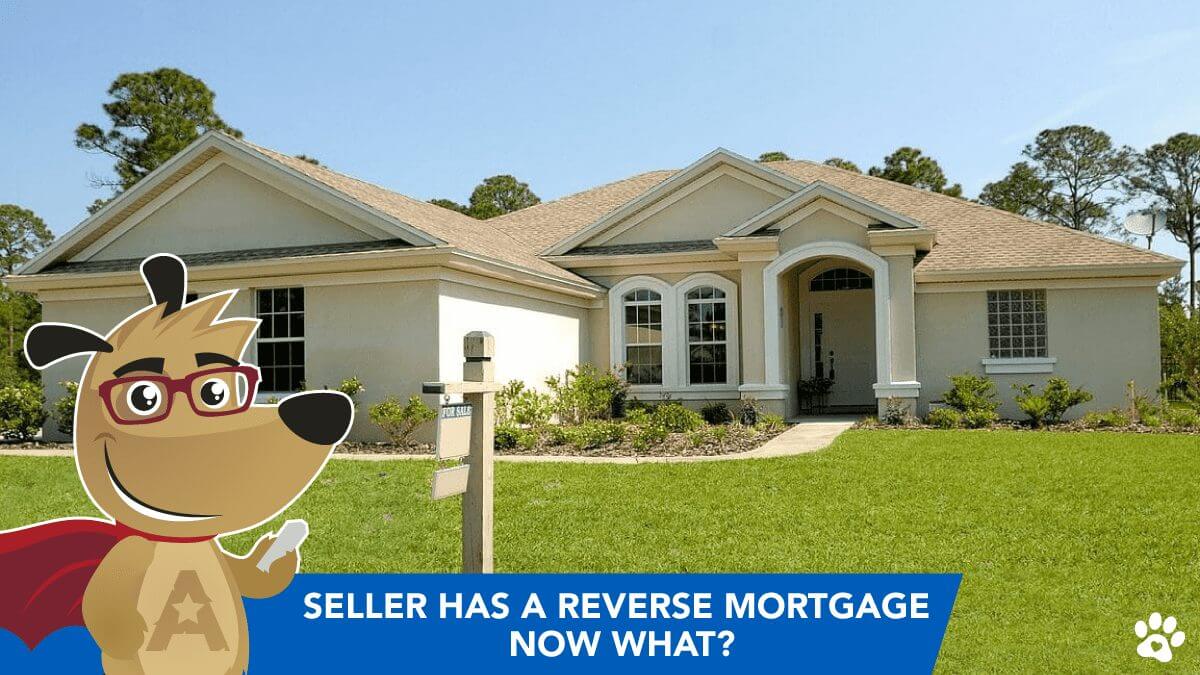How to Purchase a Home That Has a Reverse Mortgage
 |
Michael G. Branson, CEO of All Reverse Mortgage, Inc., and moderator of ARLO™, has 45 years of experience in the mortgage banking industry. He has devoted the past 20 years to reverse mortgages exclusively. (License: NMLS# 14040) |
 |
All Reverse Mortgage's editing process includes rigorous fact-checking led by industry experts to ensure all content is accurate and current. This article has been reviewed, edited, and fact-checked by Cliff Auerswald, President and co-creator of ARLO™. (License: NMLS# 14041) |
We were looking to buy a home and signed a contract for sale for $730,000. The house appraised for just over that amount. Afterward, we learned that the seller owes more than that ($760,000) on a reverse mortgage. Does HUD/FHA need to approve the sales price before we can close? The seller can complete the transaction because the sales price is within 95% of the amount owed. Does HUD/the lender get to keep the difference between what is owed and the sales price?

Are you sure that it is a HUD HECM? That balance looks pretty high for the HUD loan. While it is possible that it was one of the earlier fixed-rate loans for an older borrower with a full draw, it would not be easy to get that high otherwise unless it was a jumbo or proprietary reverse mortgage. If so, it is a whole different animal.
I can’t say for sure based on what information I have here. If the loan was done on a proprietary or private program, I could not make the same assurances about the options. If it were the HUD program, if the borrowers have passed, the lender would allow the borrower’s heirs to pay the loan off and keep the home at 95% of the current market value, but there is no option to sell the home for a short sale and let the heirs keep 5% of the sale proceeds.
If the heirs pay off the reverse mortgage at 95% of the current market value and sell the home later, they may certainly do so, but that would be a completely separate transaction. I’m not sure what you mean by “does HUD/lender get to keep the difference between what is owed and what the sales price will be” because you indicated that the sales price is less than what is owed.
Since that number is a negative number indicating a loss and not a surplus on the sale, nothing remains “to keep.”
If HUD insures the loan, as would be the case with a HUD HECM reverse mortgage, then yes, the lender and ultimately HUD would have to approve the terms of the short sale (short sale is a sale for any amount short of the full amount needed to pay the loan off wherein the owner of the property is not bringing in the money to make the lender whole and is requesting the lender to take the loss and accept the sale price as payment in full).
Lenders always have the prerogative on short sales to approve or deny the terms because they want to be sure that the sale is at the current market price, is a bona fide “arms-length” transaction, and not simply a transfer between two known parties at an agreed upon price that is less than what the property would bring on the open market that would unduly injure the lender and HUD.
Once they determine that the price offered is a fair market price and not a below market price for the property and that the sale is in their best interests, after all, if HUD realizes that it will spend as much or more to foreclose and take the property than the market and sell it, it is also in its best interest to allow the sale if they believe it to be a bona fide transaction.
Top FAQ’s
Can I buy a house with a reverse mortgage on it?
Can you sell a house when you have a reverse mortgage?
Can you transfer a reverse mortgage to a new home?
How do you buy a house back after a reverse mortgage?
What is a short sale on a reverse mortgage?
A reverse mortgage short sale is when the amount owed on the property is higher than the value of the home, and the homeowner must seek permission from the lender to sell the property for an amount less than the amount owed on the loan with the lender still accepting the sale proceeds as payment in full for the debt. Not often does it make sense to approach a lender and request permission to accept terms for a short sale on a reverse mortgaged home. If the borrowers have passed, there is no recourse on a reverse mortgage. There are no proceeds to be received from the sale for heirs, so it is probably best to contact the lender and discuss letting the lender take the property via a Deed in Lieu of Foreclosure rather than going to the expense and time to market the home when there are no sale proceeds afterward anyway. Suppose the individual who wishes to keep the home is the borrower’s heir. In that case, there is a provision in the loan that allows the heir to repay the loan at 95% of the outstanding loan balance or 95% of the current market value, and that would not be considered a short sale anyway. It is not a sale if the heir obtains title through an inheritance. Every so often, borrowers find that they can’t live in a home any longer (i.e., medical reasons, etc.), and they decide to sell the house, not knowing its actual value. Only after they put the home on the market did they find that their pattern of cash extraction, the lack of appreciation in their market, and interest accrual after a long time when they have been living payment-free has allowed them to live comfortably but also allowed the loan to rise above the value of the property. When that happens, they can request that the servicer approve a specific sale transaction to pay the loan off at less than the full amount owed. The lender would need to review the terms, determine if it is a bona fide sale between unrelated parties, and appraise the property. Next, HUD would probably need to approve the terms as this would create a claim to the MIP fund for the loss on the payoff amount. If HUD determines that the circumstances are such that the sale is within acceptable parameters and will result in no more loss than they would experience if they took the property back and sold it themselves, they would probably approve the short-sale offer. Still, the original borrower would not be eligible for other HUD/FHA-insured financing until that loss was repaid.
Also, See:
Experts Area: Heirs and Maturity




 Michael G. Branson
Michael G. Branson Cliff Auerswald
Cliff Auerswald

January 9th, 2026
January 10th, 2026
January 12th, 2026
January 13th, 2026
December 13th, 2024
December 13th, 2024
October 5th, 2024
October 7th, 2024
August 6th, 2024
August 6th, 2024
May 10th, 2024
May 13th, 2024
March 19th, 2024
March 21st, 2024
January 2nd, 2024
January 5th, 2024
January 2nd, 2024
January 5th, 2024
December 27th, 2023
December 27th, 2023
December 27th, 2023
December 21st, 2023
December 24th, 2023
October 17th, 2023
October 17th, 2023
October 15th, 2023
August 25th, 2023
September 3rd, 2023
August 15th, 2023
August 15th, 2023
July 4th, 2023
July 4th, 2023
May 9th, 2023
May 9th, 2023
May 5th, 2023
May 5th, 2023
March 23rd, 2023
April 11th, 2023
September 9th, 2023
September 14th, 2023
November 10th, 2022
November 14th, 2022
September 14th, 2022
September 14th, 2022
July 6th, 2022
July 12th, 2022
June 13th, 2022
June 13th, 2022
May 19th, 2022
June 10th, 2022
August 14th, 2022
August 16th, 2022
April 21st, 2022
April 21st, 2022
April 17th, 2022
April 21st, 2022
April 17th, 2022
April 21st, 2022
March 22nd, 2022
March 22nd, 2022
March 15th, 2022
March 22nd, 2022
September 21st, 2022
September 22nd, 2022
March 9th, 2022
March 9th, 2022
February 16th, 2022
February 16th, 2022
December 16th, 2021
December 19th, 2021
September 19th, 2021
October 8th, 2021
July 24th, 2021
August 9th, 2021
May 24th, 2021
May 24th, 2021
January 20th, 2021
January 20th, 2021
December 28th, 2020
December 28th, 2020
November 30th, 2020
November 30th, 2020
November 24th, 2020
November 24th, 2020
September 8th, 2020
September 8th, 2020
May 3rd, 2020
May 3rd, 2020
April 23rd, 2020
April 27th, 2020
November 20th, 2019
November 20th, 2019
September 15th, 2019
September 15th, 2019
June 26th, 2019
June 26th, 2019
February 13th, 2019
February 13th, 2019
September 17th, 2018
September 18th, 2018
July 14th, 2018
July 16th, 2018
December 30th, 2017
January 23rd, 2018